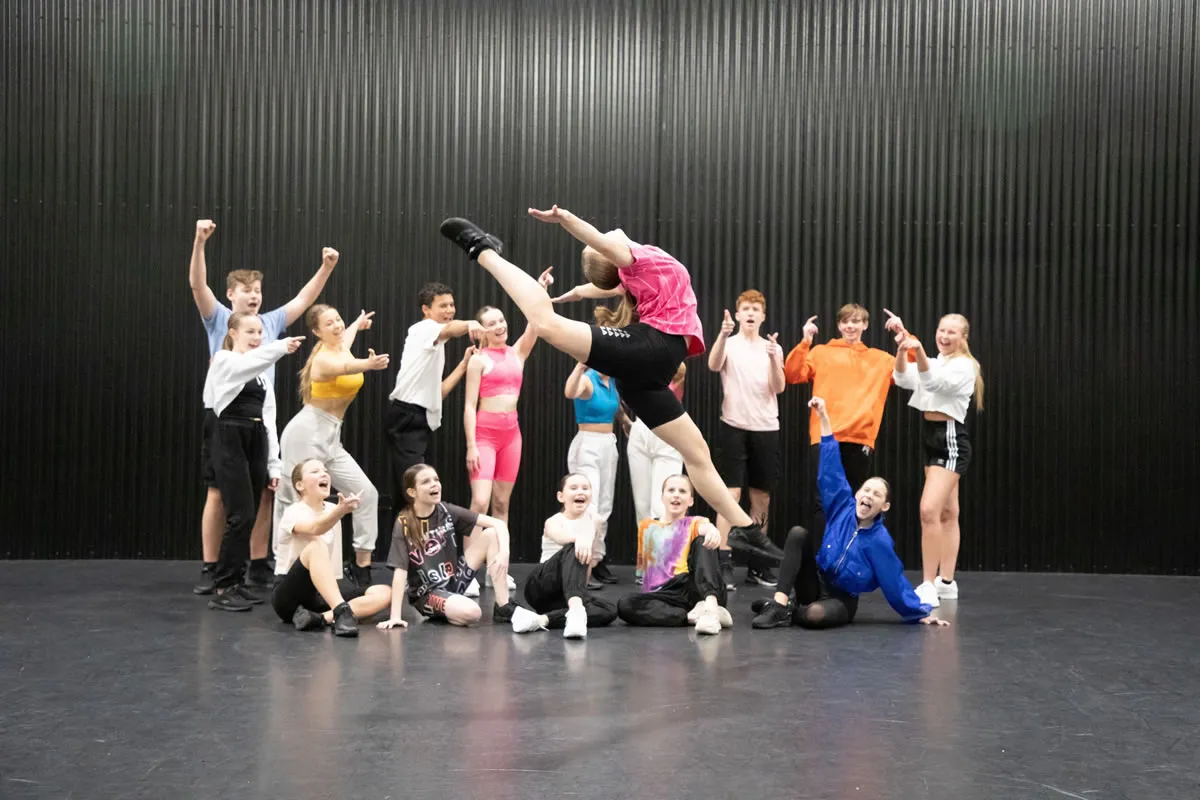Coping with Anxiety
Posted by Claire Ross

What is Anxiety?
Anxiety is natural and is a response to stress or perceived threats. It can affect our thoughts, feelings, the way our body reacts and our behaviours. Most of the time it can be a helpful signal to dangerous situations and activates the bodies fight-flight-freeze response. Although anxiety can be a normal response it can become excessive, persistent and interfere in your daily life and routines.
Symptoms of Anxiety
Physical:
- Feeling or being sick
- Tense
- Irritable bowel syndrome (IBS) or needing to urinate more often
- Dry mouth
- Getting hot
- Panic attacks which may include a racing heart, sweating and shaking
- Inability to form sentences
- Stomach pains
- Breathing quickly
- Tearful for no reason
Thoughts and Feelings:
- Feelings of dread
- Overwhelmed
- Hypersensitive to noise, smells and sight
- Worrying about things in daily life e.g. particular classes, friendships, performing, homework
- Lack of sleep due to continuous thoughts playing out in your head
Behaviours:
- Withdrawal including not wanting to go to school or not wanting to try new things
- Repeating actions or behaviours
- Eating less or more than they usually do
- Self-harm
Sources of Anxiety
This list is not exhaustive but is some of the more common sources of anxiety that I’ve come across:
- Separation. This could be from a parent, sibling, close member of the family, friend or even animal. It can also be separation of parents and this change can lead to many questions that may be bottled and lead to anxiety.
- Friends. Group dynamics can change as children grow and find out who they are. Sometimes anxiety for friends can come from change and a feeling of being disloyal if they have new interests. It can be from someone new joining a group or from constant disputes. These anxieties can seem huge and can result in a school refuser.
- Identity. Finding your identity can be stressful and anxiety comes when we begin to understand our attributes, qualities and values and then question how we see ourselves and how others see us.
- Sensory discomfort. This may seem small; however I have seen many children so distracted by their discomfort that they cannot concentrate on anything other than this, for example changing into a costume that may be itchy or smell differently can cause some children huge anxiety and stops them from performing well.
- Bullying. Remember in our modern society bullying doesn’t have to be face-to-face, it could be online, on social media, gaming. There are six types of bullying: physical, verbal, relational, cyber, sexual and prejudicial.
- School work. Pressure from schools to perform well can be projected onto the students. Peer pressure to be competitive at a certain level/grade, pressures from home, from teachers and competitiveness are some contributors to anxiety. Sometimes it’s not just the work it’s trying to be organised with equipment, being ready for the school day, making sure they have the right uniform e.g. PE, remembering they have a planner signed, reading book etc.
How to cope with anxiety as a performer
Dealing with anxiety as a performer can be extra challenging, but there are several strategies that may help. These strategies can be transferable to any situation where you may feel anxious:
- Practice Regularly:
Regular practice can build confidence and familiarity with the performance material. The more comfortable you are with your routine, the less anxious you may feel. Use your peers to help you, use videos of the routine, voice record or colour code a script or song lyrics. - Deep Breathing and Relaxation Techniques:
Simple techniques, like counting breaths or inhaling and exhaling slowly, can be effective. Many devises like smart watches have a feature on them that can help with this. ‘Cookie breathing’ can be effective: Watch video on YouTube. Many older students have found this is a technique that works well. Yoga is a great way of learning breathing techniques as well as a great form of exercise and will help build your core strength as well! If you’re fortunate enough to sing or play an instrument that requires maintained breathing, then this can also be a useful technique to gain control of your breath again. - Positive Visualisation:
Use visualization of a calm, safe space and then visualize yourself successfully performing. Try to visualise the stage as a safe place. If you are anxious before performing close your eyes and use your 5 senses to imagine the place you are in. This will help to ground you. Imagine the positive reactions from the audience as this will boost your confidence. - Set Realistic Goals:
Establish achievable goals for each performance to prevent overwhelming anxiety. Sometimes, as a performer, we measure ourselves against other performers we admire, remember though that it takes a lot of training and small achievable steps to be that good. If you establish realistic goals, you will soon begin to see progress and your anxiety will lessen. Celebrating small victories will help to build your confidence over time. - Create a Routine:
Establish a pre-performance routine to help you feel more in control. Things like making sure your costumes, accessories, make-up are all ready and to hand. Make sure you arrive with plenty of time to get ready, go over anything and connect with the other performers. Consistent routines can provide a sense of stability in the face of performance anxiety. - Encourage Self-Expression:
Having an open communication about your fears and concerns with someone you feel safe with will allow you to verbalise your emotions. This can have a positive impact as it may help you find the route cause of your anxiety or support you in coping strategies. I have found that when children are anxious, they cannot always verbalise how they feel so having that open communication can give them guidance understanding how they are responding. - Focus on the Enjoyment:
Remind yourself of all the reasons why you enjoy performing and focus on this. Begin to shift your focus from external validation to personal fulfilment and link this to your realistic small step goals. When we forget about how we enjoy an activity we start to worry that we are not performing as well as others and forget that we should focus on ourselves and our own achievements. - Positive Reinforcement:
Think of all of the positives and your achievements and praise yourself for your efforts, regardless of the outcome. My motto in all situations are that mistakes are important. If we don’t make mistakes, we have nothing to learn from so turn those negatives in positives for future performances.
Remember that everyone is unique, and it may take some time to find the strategies that work best for you. Additionally, if anxiety persists or worsens, consider seeking guidance from a mental health professional who can provide personalised support.
How MEPA Academy supports students with anxiety
All our teachers will help you if you are feeling anxious. They will work with you to try to find where your anxiety lies and break this down to small steps that they know will be achievable for you and lessen that anxiety.
Other ways we support you is through our personal tailored MEtime. In these sessions we can explore your feelings, verbalise your anxiety, explore how your body reacts to your anxiety and give a personalised plan of action. This plan may include: extra transition visits before you start at MEPA Academy; re-connection visits during the holidays just before term starts again; pre-term phone calls to re-connect; meeting you at your car/train/bus and walking with you to school; talking to you before going into a class you feel particularly anxious about; helping you with organisation. These are just a few of the our personalised plans and we can tailor these to your needs.
For the whole school, during assembly and PSHE times, we explore anxiety in different situations, including exams. We look at different coping strategies which we then trial as an interactive session.
Useful websites
YoungMinds supports children and young people to get the best possible support for their mental health and have the resilience to overcome life’s difficulties. The website explains what anxiety is, the symptoms, treatment and where to get help. There are also helpful resources and a parent helpline.
Anxiety UK offers support for children and young people who are experiencing anxiety. They offer information about anxiety and free accessible resources. There is also the opportunity to access online support groups or online therapist-led structured management courses.
About the Author

Claire Ross
I have been teaching for 30 years+ in a variety or settings including specialist provisions, units, small schools, large primary schools and secondary schools as an English teacher.
Following a year studying for the Nasenco Award, I became a SENCO within a primary school which then led to me working with a range of children with a wide variety of needs. As a natural progression I then became a safeguarding lead and designated mental health lead for MEPA Academy, as well as SENCO and English teacher.